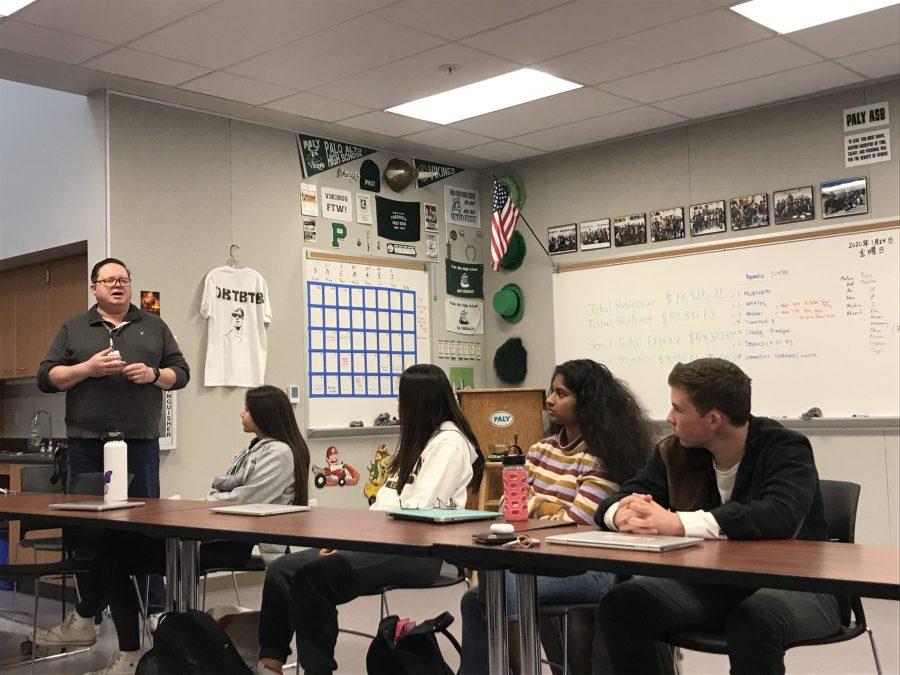Aiming to evaluate homework policies and practices, the Palo Alto Unified School District is conducting a homework study for Palo Alto and Henry M. Gunn high schools, the results of which will be sent to the PAUSD Board of Education for review.
According to a statement released by Program Assistant Emily Kuhbach, the study will be designed to “inform future implementation of the District’s homework policy.”
Taking place at the end of February, the two-week study addresses the broader social-emotional learning (SEL) implications of homework levels.
Its outcome will be compared to the current District homework policy, according to Chris Kolar, director of research and assessment at the District’s Research, Evaluation and Assessment (REA) office, which is responsible for auditing the academic output of the District.
“If you take a look at the Board of Education policies, they have gone through trouble to lay out what acceptable homework load for students should be,” Kolar said. “This has a huge affect on student level of stress, anxiety and overall wellness. It’s an SEL issue. The challenge has been that we have had some difficulty collecting perfect data about homework in the past.”
The study will survey randomly-selected sophomores and juniors taking the most challenging course loads at both high schools, 90 students from Paly and 90 from Gunn.
Although 180 students may not sound like a large sample size, each subject provides multiple data points every day for two weeks, known as a high-frequency sampling method, according to Kolar.
“We’ll have a lot of information,” Kolar said. “We’ve done some stratification of the sample and one of our primary groups of interest is kids who are taking three to five APs and honors classes. Part of the reason we oversampled that group is because they will have the most difficult workload to manage, and we learn a lot about them.”
Part of the motivation for the current study involves the results of an REA end-of-course survey from a few years ago, Kolar said.
“We saw this break between the fact that you could rationalize within a given class why the homework was being given, but your holistic experience was that it was all too much or difficult to manage,” Kolar said. “So the challenge is to say, ‘what is it we are really trying to address when talking about a homework policy?’”
The survey asks questions about homework, including asking students to “retroactively summarize” aspects of their homework experiences, according to Kolar.
But what is distinctive about the survey is its use of the Experienced Sampling Method, a statistical model the District has not tried before, which asks questions at random times throughout the day and students report on what they’re doing.
“Participants will have an app on their phone,” Kolar said. “It’s been used in several schools and it’s provided a lot of information about students in high-performing Districts like ours.”
For example, students will be asked how homework affects them compared to other extracurricular activities.
“(The study addresses) what it really means when students in Palo Alto talk about doing homework, managing homework, strategies used to get it done, while also fitting in with the other things in their life,” Kolar said. “It’s understanding that homework takes place in a context. You’re also in sports, clubs and activities.”
Following data collection, students will meet with Superintendent Don Austin and board members to discuss their experiences being in the survey and the data collection.
“It’s really for the students to talk about … some of their thoughts and what they’ve learned about their own habits and homework in general,” Kolar said. “It’s an incentive for the students to have access to the superintendent and the board members about their takeaways.”
Senior Jordan Lee said one of the biggest problems is teachers don’t know how long assignments take.
“A lot of the times they’re like, ‘Yeah, this lab should take you one hour tops,’” Lee said. “‘When I did it, it took me 45 minutes, so that should be enough.’ Well, you’re the teacher, you already know all the right answers.”
Test-stacking, when multiple tests occur around the same time, is also a significant part of the problem, according to Lee.
“The top priority is improved communication between teachers,” Lee said. “Last year was a giant mess at times because teachers would assign tests all in the same week. It felt like every month there was a week where every teacher intentionally conspired to mess with us. I’d love it if teachers communicated more with other classes in the same lane e.g. AP Physics with BC and AB Calculus, AP Chemistry with Physics H and Analysis H.”
Austin said the latest study will be part of a larger district shift towards more increasing student input.
“We are hoping to make the homework surveys more routine and systematic in nature to measure progress over time,” Austin said. “Those things measured typically improve more consistently than things undiscussed for periods of time.”
Moving forward, the District may choose to determine if altering the policy will be needed to lower homework levels, according to Austin.
“Part of the question is to determine if the actual practice is matching the (board) policy,” Austin said. “Ultimately, we are all responsible for adhering to board policy. We hoping to see a reduction in homework that was placed in policy years ago. The board is considering the adoption of policy from the California School Boards Association (CSBA) that would slightly revise our current policy to remove homework from a portion of student grades.”



